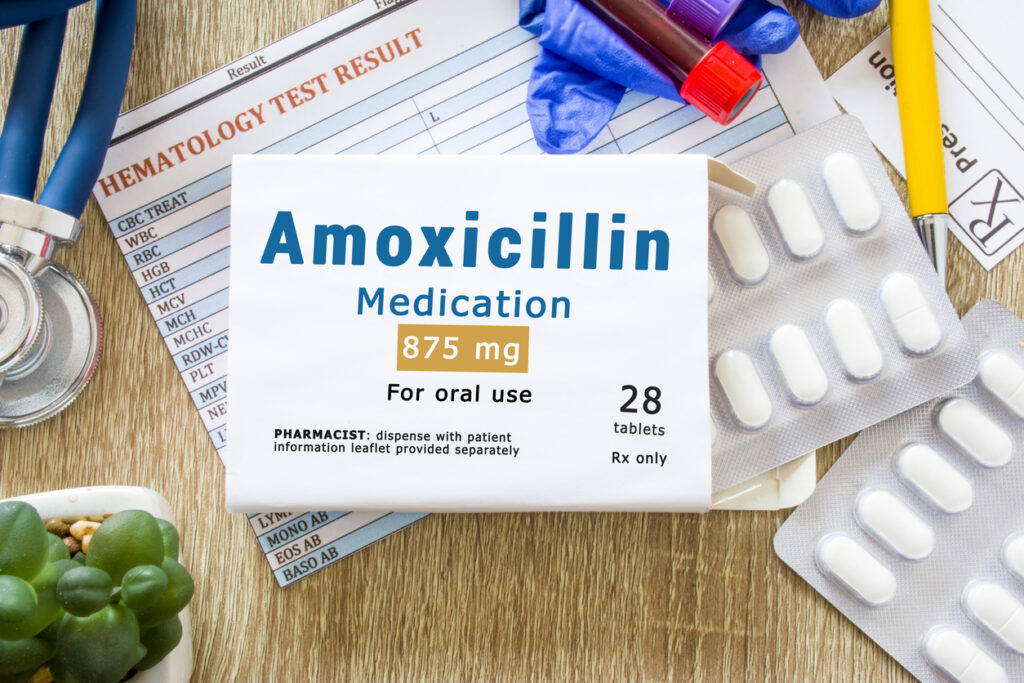Urinary tract infections (UTIs) are a common and often painful condition that many people experience at some point in their lives. Fortunately, antibiotics are a highly effective treatment for most UTIs, helping to eliminate the infection and alleviate symptoms quickly.
At UrgentCare.com, we understand the importance of getting the right treatment for your UTI. In this guide, we’ll explore how antibiotics work, when they’re necessary, and what you need to know about using them safely and effectively.
How Do Antibiotics Treat UTIs?
Antibiotics work by targeting and killing the bacteria causing the infection. Since most UTIs are caused by bacteria such as Escherichia coli (E. coli), antibiotics can clear the infection and prevent it from spreading to other parts of the urinary tract, such as the kidneys.
Types of antibiotics commonly prescribed for UTIs include:
- Trimethoprim-sulfamethoxazole (Bactrim): Effective against a wide range of bacteria.
- Nitrofurantoin (Macrobid): Often used for uncomplicated UTIs.
- Ciprofloxacin (Cipro): Typically reserved for more severe or complicated cases.
- Amoxicillin: Used in certain cases, especially during pregnancy.
Your healthcare provider will choose the best antibiotic for your situation based on the type of bacteria and the severity of your infection.
When Are Antibiotics Necessary for a UTI?
Antibiotics are typically needed for UTIs caused by bacteria, especially if symptoms are moderate to severe.
Symptoms that may require antibiotics include:
- Pain or burning during urination.
- Frequent or urgent need to urinate.
- Cloudy, foul-smelling, or bloody urine.
- Discomfort or pressure in the lower abdomen.
- Fever, chills, or back pain (indicating a possible kidney infection).
Important: Not all urinary symptoms are caused by bacterial infections. Your provider may perform a urine test to confirm the presence of bacteria before prescribing antibiotics.
How Long Does Antibiotic Treatment Take?
The length of treatment depends on the severity of the infection and the specific antibiotic prescribed.
Typical durations include:
- Uncomplicated UTIs: 3-7 days.
- Complicated UTIs or kidney infections: 7-14 days or longer.
It’s crucial to complete the full course of antibiotics, even if symptoms improve before you finish. Stopping early can allow bacteria to survive and cause a recurrent infection.
What to Expect During Treatment
Antibiotics usually start working within a day or two, with noticeable improvement in symptoms like pain and urgency. However, it may take a few more days for all symptoms to resolve completely.
Tips for a smooth recovery:
- Drink plenty of water to flush out bacteria.
- Avoid caffeine, alcohol, and spicy foods, which can irritate the bladder.
- Use a heating pad on your lower abdomen to relieve discomfort.
What Are the Risks of Antibiotic Treatment?
While antibiotics are generally safe and effective, there are potential risks and side effects to be aware of:
- Common Side Effects: Nausea, diarrhea, or mild stomach upset.
- Allergic Reactions: Rash, itching, or more severe reactions in rare cases.
- Antibiotic Resistance: Overuse or misuse of antibiotics can lead to bacteria becoming resistant, making future infections harder to treat.
How to minimize risks:
- Take antibiotics exactly as prescribed.
- Avoid using antibiotics for viral infections, such as colds or the flu.
- Inform your provider of any allergies or past reactions to medications.
Preventing the Need for Antibiotics
While antibiotics are effective for treating UTIs, prevention is always better than treatment.

Tips to reduce your risk of UTIs:
- Stay hydrated to flush bacteria from the urinary tract.
- Practice good hygiene, such as wiping front to back and urinating after sexual activity.
- Avoid holding in urine for long periods.
- Consider cranberry supplements or probiotics to support urinary health.
When to Seek Medical Care for a UTI
It’s important to seek medical attention promptly if you suspect a UTI, especially if symptoms are severe or persistent. Delaying treatment can lead to complications, such as kidney infections or chronic UTIs.
Consult a doctor if you experience:
- Symptoms lasting more than a couple of days.
- Fever, chills, or back pain.
- Blood in your urine.
- Recurring UTIs that don’t improve with over-the-counter remedies.
How UrgentCare.com Can Help
At UrgentCare.com, we make it easy to get the care you need for UTIs. Our telemedicine platform connects you with licensed providers who can diagnose your condition and prescribe antibiotics if necessary.
Why choose UrgentCare.com?
- Convenience: No need to visit a clinic—consult online from home.
- Affordable Care: Flat $35 fee with no hidden costs.
- Fast Treatment: Prescriptions sent to your pharmacy.
Our experienced providers can help you manage your UTI and prevent complications, all from the comfort of your home.
Final Thoughts: Get Fast Relief for Your UTI
UTIs can be painful and disruptive, but antibiotics offer a reliable and effective solution. By understanding how antibiotics work and following your provider’s instructions, you can clear the infection quickly and reduce the risk of recurrence.
At UrgentCare.com, we’re here to support you every step of the way. Whether you need a diagnosis, treatment, or advice on prevention, our telemedicine services are designed to meet your needs.
Don’t wait—visit UrgentCare.com today and get fast, affordable care for your UTI!
